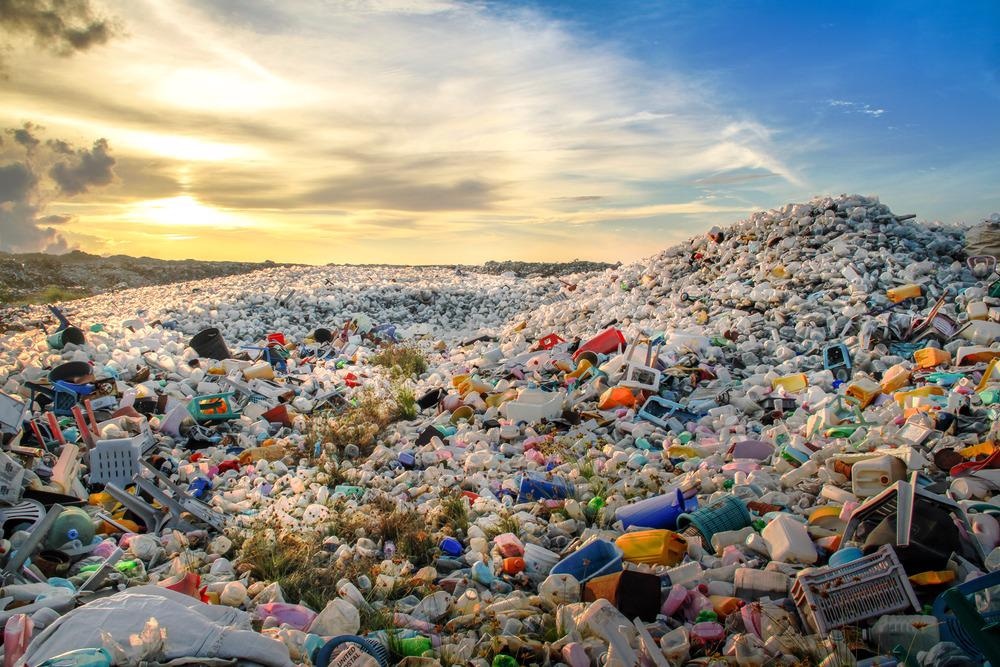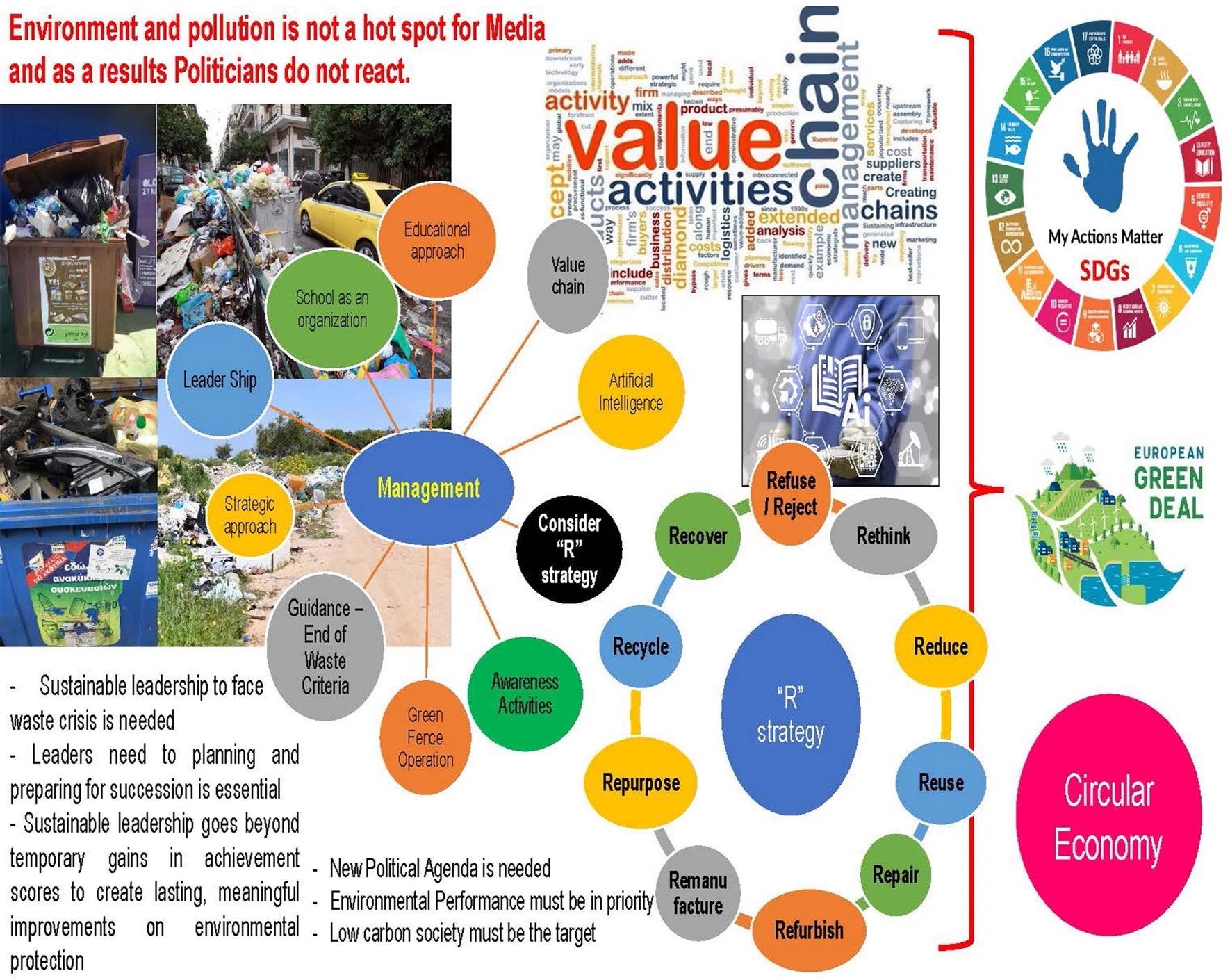Human activity has produced a staggering amount of waste that calls for effective waste management to avoid environmental damage and make use of resources more efficiently. However, there is a global dichotomy in waste management strategies, and the question of who is leading waste management and how it can be improved is central to a new study published in the Euro-Mediterranean Journal for Environmental Integration.

Study: Crisis in leadership vs waste management. Image Credit: MOHAMED ABDULRAHEEM/Shutterstock.com
Waste: A Global Issue
Recent studies have estimated that globally, 2 billion tons of solid waste is produced annually. With the growth in world population and accelerating industrialization, this figure is predicted to grow exponentially over the coming decades. This is out of line with the UN’s Sustainable Development Goals, demonstrating that there is a massive failure in global waste management strategies. Governments and researchers are falling behind.
Around the world, governments and industries have a dispersed and unsustainable approach to waste management. Most of the organic waste in municipal solid waste is still sent to landfills, creating a huge environmental issue. Waste treatment methods such as mechanical biological treatment consume copious amounts of energy and have elevated carbon emissions.
Additionally, the cost of these treatments can be prohibitive, preventing the construction of new waste treatment plants, especially in developing nations.
Furthermore, even wealthy nations who could afford to implement better waste management strategies sometimes ship their waste overseas to less-developed nations, compounding the problems with waste management in these countries. This global dichotomy in waste management is making the problem worse, and solutions will require a comprehensive approach.
Considering the Question of Who is Really in Charge of Waste Management
The study published in the Euro-Mediterranean Journal for Environmental Integration explores this question. Since the Treaty of Rome in 1957 created the European Union, there has been no specific joint statement by national governments on how they aim to tackle the problem of protecting the environment.
At the European level, there has thus far been no specific initiative. Various treaties and policies have not met their targets. What the world needs is not more legislation, but international action.

Image Credit: Zorpas, A et al, Euro-Mediterranean Journal for Environmental Integration
The crisis in global cooperation on waste management and environmental protection was laid bare when the USA refused to sign the Paris Agreement in 2016. In the years following, global leaders have sought to get back on track. The European Green Deal Strategy that was presented at the end of 2019 seeks to reset the bloc’s commitments to tackling environmental challenges, aiming for net-zero carbon emissions by 2050. Realizing this will take significant political will.
Looking beyond Europe, it can be seen that there is a global waste crisis. According to numerous reports, China and India account for around 27% of global waste. Additionally, they account for 36% of the global population. In the US, the average resident generates 773kg of waste per year, which is three times as much as the average Chinese citizen, and more than the 500kg produced by the average EU citizen. In Vietnam, waste has grown beyond the country’s capacity to deal with it.
By 2050, global waste is predicted to increase to 3.4 billion tons, according to the World Bank. By 2100, if current trends continue, it could top 4 billion tons. Waste is highest in urban areas, and the more industrialized a nation becomes, the more it generates.
Waste is expected to double in developing nations due to population growth, urbanization, and industrialization. The USA, Brazil, India, China, Germany, and Japan top the list of global waste generators. Illegal dumping accounts for 40% of global waste. Food waste contributes significantly to global carbon dioxide emissions. The world is fast approaching a tipping point with waste.
How can this Issue be Solved?
The effects of poor waste management are numerous. Aside from carbon emissions and environmental damage, waste can have a negative effect on human health, especially in vulnerable communities that live near landfills and dumping sites. Additionally, uncollected or incorrectly disposed of waste can reduce land value and negatively affect local tourism industries. Waste can cause an eyesore.
Several policies need to be put in place at both the national and international levels. Policymakers need to realize that investing in proper long-term waste management makes environmental, social, and economic sense. It also reduces the burden on local healthcare systems. Political decisions tend to be short-sighted in nature, with many political parties treating environmental protection and waste management as a low priority.
Tackling the problem with global waste management will require international cooperation to reverse the historic trends in waste generation. Implementing a circular economy approach to waste management will doubtless help reduce the amount of waste currently in the environment and the amount generated in the future. It will take significant political will and a concerted effort on an international level, but this must be achieved for the sake of future generations.
Further Reading
Zorpas, A et al. (2021) Crisis in leadership vs waste management [online] Euro-Mediterranean Journal for Environmental Integration 6 | link.springer.com. Available at: https://link.springer.com/article/10.1007/s41207-021-00284-1
Disclaimer: The views expressed here are those of the author expressed in their private capacity and do not necessarily represent the views of AZoM.com Limited T/A AZoNetwork the owner and operator of this website. This disclaimer forms part of the Terms and conditions of use of this website.